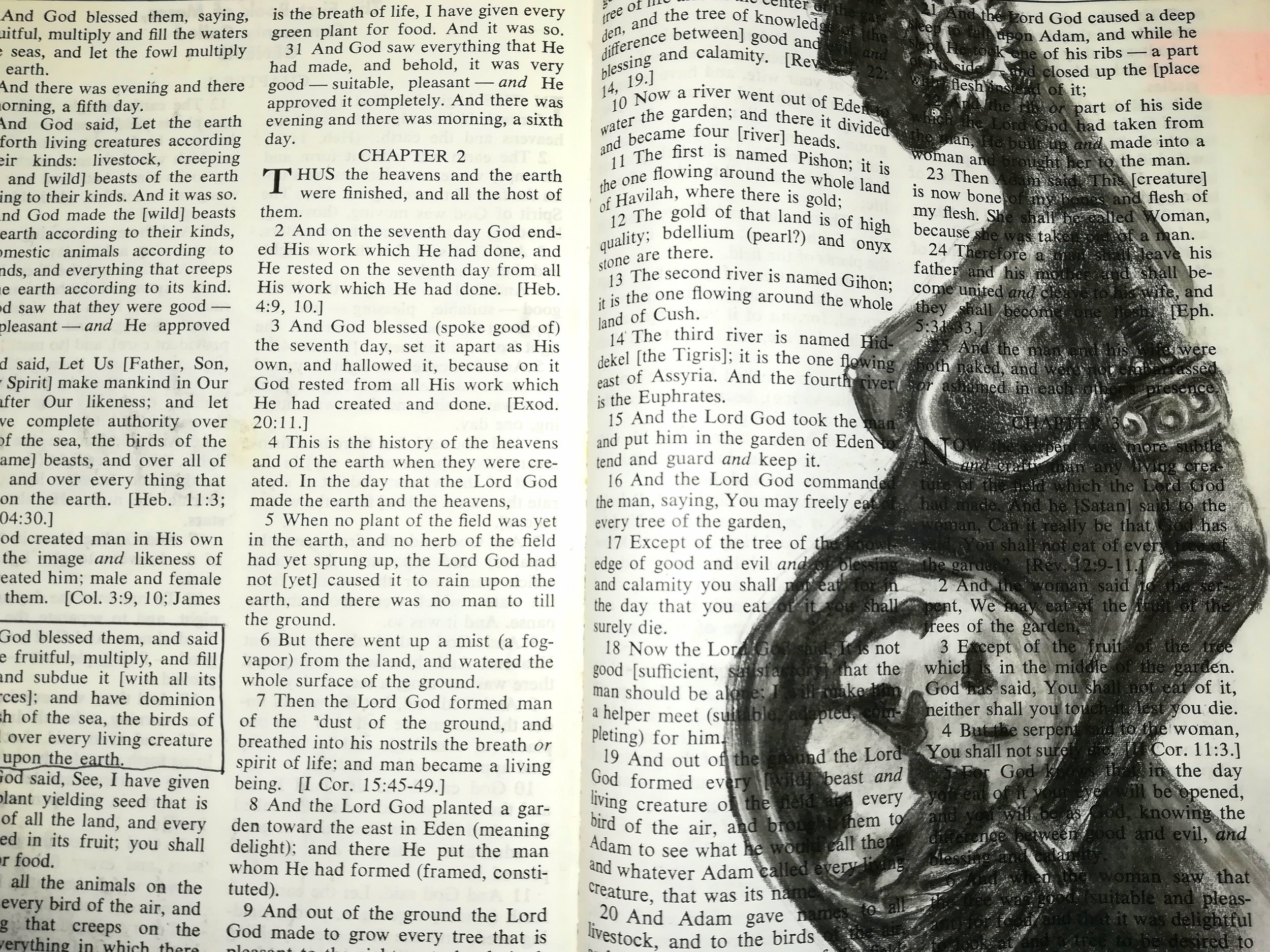by Liesl Stewart
Artist: Zach Stewart
As we’ve collectively lived the trauma of this global pandemic, I’ve often pondered how fragile our lives truly are. For many of us, our lives have been painfully impacted and disrupted by the spread of a virus we can’t even see without a microscope.
Our shared beginning as mud cakes formed from this earth should remind us to live humbly with each other. We are mutually dependent on our Creator in our shared fragility.
As we live our days within God’s unfolding story, are we mindful that we are but dust? Do we live humbly with our fellow human and nonhuman creatures?
Newscasts bear daily witness to hostility and abuse between humans. Equally, it’s clear that animals generally don’t fare well at the hands of humans. Sadly, for too many wild species, we are cataloging their extinction due to loss of habitats because people and governments have failed to share the earth in the ways that First Nations and indigenous people have modeled for centuries. By magnitude, the worst cases of nonhuman animal treatment are for the sake of food production, with human laborers suffering as well.
For the past 28 years, I’ve lived in South Africa, a country I married into. Centuries of colonialism and the years of Apartheid rule entrenched violence within our dominant food system. The government used laws formed in white supremacy to work violence against People of Color by robbing them of their farmland.
Violence continues to permeate the food system. Many farm laborers are exploited with the very low wages they are paid by large, mostly white-owned farms. A few supermarkets and large food companies dominate food sales, and they make nutritious food inaccessible to many people by setting high prices. The land itself is exploited by the industrial farming methods used by large-scale farms.
The violence within the food system extends to the treatment of farmed animals. Increasingly, animals are treated as if their only worth is as meat, or for the eggs and milk they produce; whether they live decent chicken lives, or pig lives, or cow lives doesn’t factor. They are treated as units on a factory conveyor belt, not as created beings who can feel and suffer.
When it comes to meat and other animal products, the USA and other countries in the minority world have perfected factory farming efficiencies. Sadly, the rest of the world has taken their example, and now most of the world’s farmed animals are forced to live terrible lives and die terrible deaths in factory farms.
Putting the focus on animal creatures, what exactly is our human responsibility to the rest of Creation?
In Gen 1:26, God said, “Let us make human beings in our image, in our likeness, so that they may rule” —or dominate —“over every living creature.” For many years I lived uncomfortably with this God-given mandate to exercise dominion over our fellow earthlings. It felt violent to me, and I could see the unbearable evidence of humankind wielding violence against the earth and environment, against animal creatures, against each other. Alas, the Hebrew word in the text —radah —does mean ‘to rule’ or ‘to dominate.’ So, we can’t simply wish away that portion of our sacred text.
I now understand that this mandate to rule wasn’t God’s sanction to abuse or exploit Creation. We mishandle the text when we focus only on the dominion directive, but not on the preceding words: “Let us make human beings in Our image, in Our likeness, so that…”
Pause for one moment and breathe in this astounding truth: God’s image is formed into every person who has and ever shall live!
We are image-bearers of the Creator of the heavens and the earth, and we carry this image so that we will reflect God’s likeness as we live. With our dominion, we are meant to represent God to God’s own Creation. This is a special responsibility that we carry as humankind, and we sow devastation when we forget Whom we represent.
But we have forgotten in Whose image we are made. We have forgotten our fragility. We have stepped far from serving all Creation with humility.
Let’s be mindful of Whom we represent to the rest of Creation. Let’s carry this responsibility with holy awe, even if it means we will need to change our food sources and eating behaviors.

